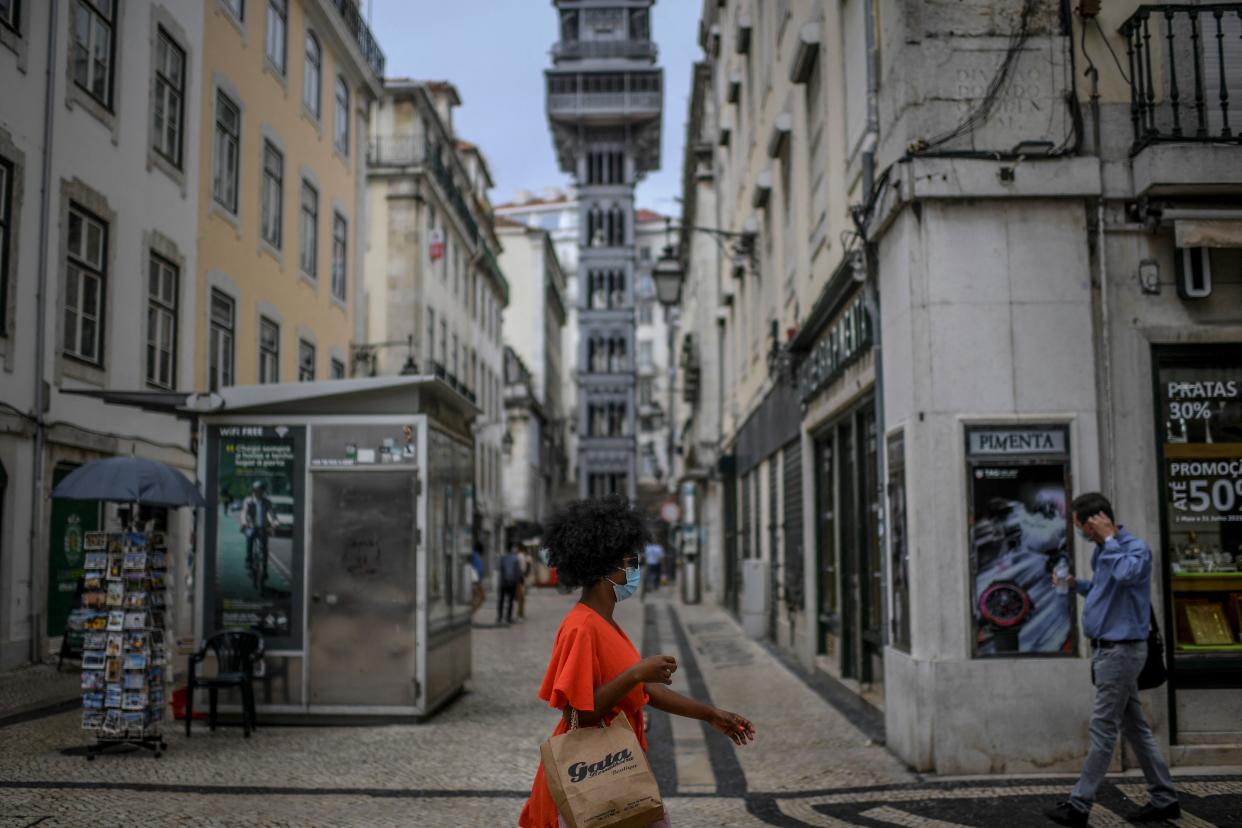Portugal begins to ease Covid restrictions on path to ‘total freedom’

Portugal has started to ease its Covid restrictions on the path to what its prime minister calls “total freedom”.
The country’s says around 5.4 million people, or 52 per cent of the target population of people over the age of 16, are fully vaccinated.
Its health ministry predicts the goal of 70 per cent of people fully vaccinated will be reached in six weeks, with 85 per cent completely inoculated in October.
“This is the moment ... when we can take another step forward,” Prime Minister Antonio Costa said in a televised announcement.
“We are going to try and get the economy moving again, in a gradual way, in sync with the pace of vaccination.”
He announced three phases of staggered relaxation of restrictions stretching over the next three months.
From Sunday, local curfews will end and restrictions on the opening times of restaurants, shops and cultural venues will be lifted, allowing them to stay open until 2am.
However, a digital virus pass proving inoculation or a negative test will be needed to enter restaurants at weekends or on public holidays, when they are often busy, and for gyms and sports and cultural events.
Working from home will be recommended instead of mandatory.
From September, face masks will no longer be mandatory outdoors and premises holding public events can increase the number of people present to 75 per cent of capacity, up from 66 per cent.
Bars and nightclubs, closed for the past 16 months, will reopen in October.
The number of new daily Covid cases has been slowly falling since last week, with just over 3,000 reported on Thursday.
The infection rate per 100,000 population over 14 days, a key pandemic metric, remains at 428.
Hospital admissions due to Covid have stayed within the red lines established by health authorities.
Last month, Portugal introduced a raft of new pandemic measures, including local curfews and limits on social gatherings and store opening times, amid a surge in new cases that brought infection rates and hospital admissions not seen since February.
At the time, Portugal was one of the hardest-hit countries in the world, with authorities blaming the Delta variant for the surge.
The variant has this month accounted for almost all new cases.
Additional reporting by the Associated Press.
Read More
Hopes for summer holidays in the US dashed
Airports expect busiest weekend of the year as summer takes off

 Yahoo News
Yahoo News 
